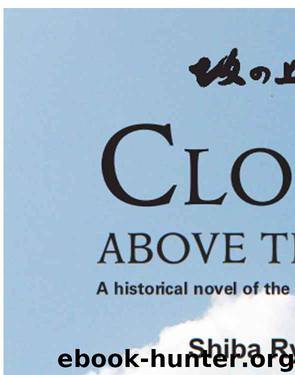Clouds above the Hill: A Historical Novel of the Russo-Japanese War, Volume 1 by Shiba Ryōtarō

Author:Shiba Ryōtarō [Ryōtarō, Shiba]
Language: eng
Format: epub
Publisher: Taylor and Francis
Published: 2014-12-05T00:00:00+00:00
2
NEGISHI
Around this time, Shiki moved into a different house, but he traveled only the short distance from 88 Kami-Negishi to number 82. The move came about because Kuga Katsunan raised Shiki’s salary in January 1894 to thirty yen a month. The rent at what would be his final residence was four yen a month, later four yen and fifty sen.
It was a one-story house with four rooms. On the right of the two-mat entryway was a small three-mat room for his mother Yae, on the left a slightly larger, four-and-a-half-mat room for his sister Ritsu. Straight back was a spacious eight-mat room that served as parlor, and on the left of that was a six-mat room facing south that Shiki took over as sitting room and study.
Land in the vicinity was owned by the wealthy Maeda family, rulers of the former domain of Kaga (now Ishikawa Prefecture). The Maedas had once owned a large estate in the Hongō area of the city, but in the early days of the Meiji period this was purchased by the government to become the campus of Tokyo University. The Maeda family then relocated to Kami-Negishi.
The Kami-Negishi estate, complete with Noh stage, was a sprawling residence. The vast grounds, surrounded by a black fence, were a veritable forest, thick with a variety of trees—pine, cedar, and cypress, as well as zelkova and oak. In one corner of the estate was a row of cottages for Maeda family retainers and several dozen houses that the family lent out. Shiki’s was one of these.
In the morning, Shiki would doze, read, or write. Around two in the afternoon, he went to the newspaper office, where he would work a couple of hours and then leave for the day. While he was chief editor of the illustrated family newspaper Shōnippon, he worked longer hours, but that paper survived only six months. When he returned to the parent publication, he adopted the shortened workday.
On his tenth day back at Nippon, the naval battle of Pungdo took place, marking the start of war. At the time, Shiki was writing a series of articles entitled “Scattered Remarks on Literature,” but, as more and more of his colleagues left to become war correspondents in China, the amount he had to write steadily increased. Although he was a literary editor, at times he would go to the Diet and write political articles. The paper was so shorthanded that some days he was required to write a piece “four or even five” columns wide. When that happened, he would write an essay interspersed with haiku based on his wanderings in Nippori or Mikawashima.
Over time, as the paper was enlivened with articles from battlefields overseas, Shiki’s haiku commentaries and essays mingled with tanka oddly lost luster. He badly wanted to be a war correspondent and asked Kuga to let him go. Though Kuga was inclined to grant most of Shiki’s requests, this one he rejected, reminding him, “You have your health to think of.”
* * *
So the winds of war blew even as far as Shiki’s town of Negishi.
Download
This site does not store any files on its server. We only index and link to content provided by other sites. Please contact the content providers to delete copyright contents if any and email us, we'll remove relevant links or contents immediately.
| African-American Studies | Asian American Studies |
| Disabled | Ethnic Studies |
| Hispanic American Studies | LGBT |
| Minority Studies | Native American Studies |
Cecilia; Or, Memoirs of an Heiress — Volume 1 by Fanny Burney(32533)
Cecilia; Or, Memoirs of an Heiress — Volume 2 by Fanny Burney(31931)
Cecilia; Or, Memoirs of an Heiress — Volume 3 by Fanny Burney(31920)
The Great Music City by Andrea Baker(31905)
We're Going to Need More Wine by Gabrielle Union(19025)
All the Missing Girls by Megan Miranda(15901)
Pimp by Iceberg Slim(14470)
Bombshells: Glamour Girls of a Lifetime by Sullivan Steve(14041)
For the Love of Europe by Rick Steves(13836)
Talking to Strangers by Malcolm Gladwell(13335)
Norse Mythology by Gaiman Neil(13324)
Fifty Shades Freed by E L James(13222)
Mindhunter: Inside the FBI's Elite Serial Crime Unit by John E. Douglas & Mark Olshaker(9305)
Crazy Rich Asians by Kevin Kwan(9264)
The Lost Art of Listening by Michael P. Nichols(7483)
Enlightenment Now: The Case for Reason, Science, Humanism, and Progress by Steven Pinker(7300)
The Four Agreements by Don Miguel Ruiz(6733)
Bad Blood by John Carreyrou(6604)
Weapons of Math Destruction by Cathy O'Neil(6252)
